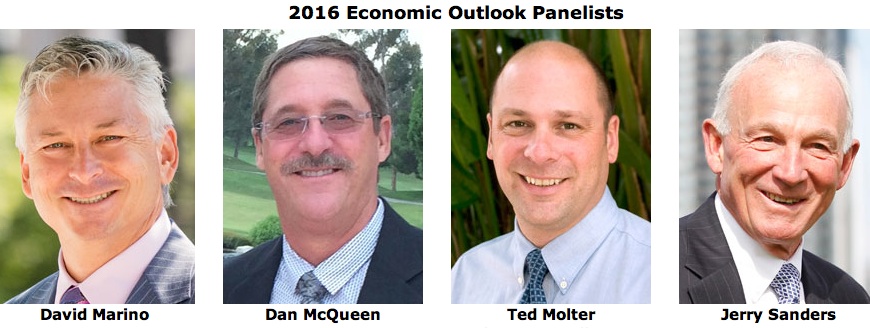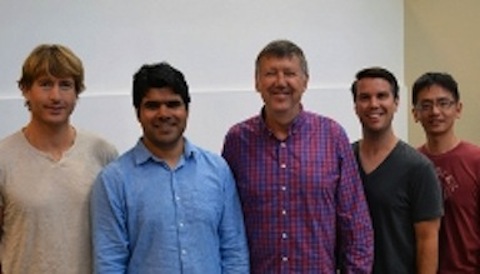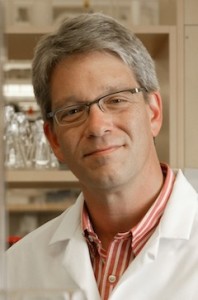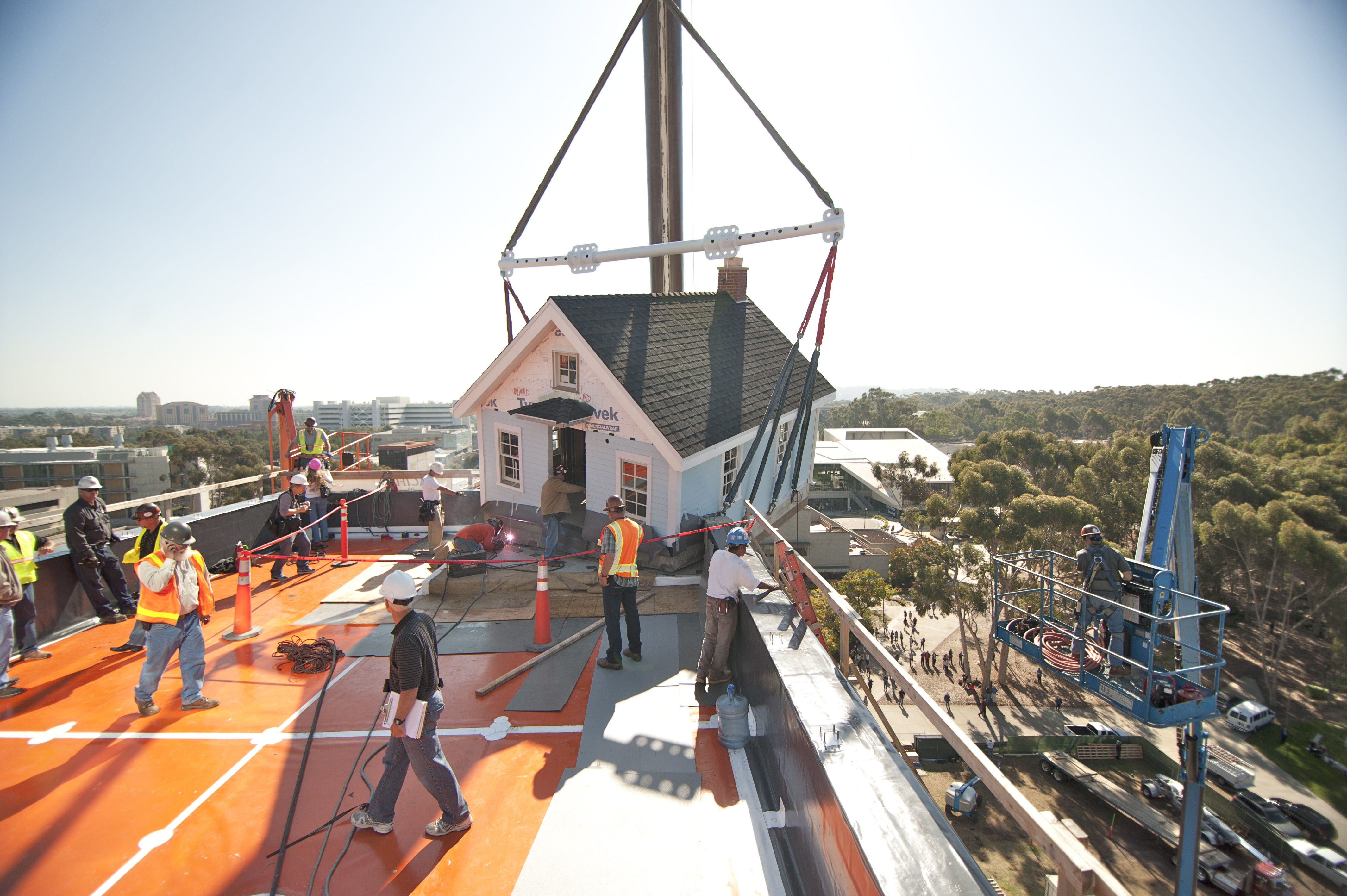Daily Business Report-Jan. 14, 2016
Downtown San Diego (JLL San Diego)
Bolstering San Diego Business
2016 Economic Outlook
San Diego business leaders will come together on Jan. 21 to discuss San Diego’s 2016 Economic Outlook at the San Diego State University College of Business Administration’s Business Forum Speaker Event.

The event was created to explore effective strategies for expanding business growth in 2016; examine industry specific trends for Southern California; discuss risk factors for 2016; recognize changes in markets that could affect businesses; and identity external factors that could affect businesses.
“The Business Forum event is an outstanding opportunity to hear from prominent business leaders in San Diego regarding this year’s economic forecast,” said Dennis Cradit, dean of the College of Business Administration. “I am confident that those attending will not only benefit from the wisdom of the panelists, but also come away with strategies to enhance and improve their businesses.”
The event will feature a networking reception, a panel discussion and Q&A session.
Panelists include:
• David Marino, executive vice president of Hughes Marino Inc.
• Dan McQueen, president of Fluid Components International
• Ted Molter, chief marketing officer of San Diego Zoo Global
• Jerry Sanders, president and CEO of the San Diego Chamber of Commerce
The event will run from 3:30 to 6 p.m. at the Hyatt Regency La Jolla. This event will be one of three Business Forum events hosted by the College of Business Administration this year.
For more information, and to register, visit the event website.
__________________________________________

Getting Closer to an HIV Vaccine
For more than 30 years, an effective vaccine against HIV has eluded scientists, and more than two million people are still newly infected with the virus each year. In a recent study, scientists at The Scripps Research Institute gained a new weapon in that long fight. They identified four antibodies targeting a specific weak spot on HIV that provided key information for the design of a potential HIV vaccine candidate.
“This study is an example of how we can learn from natural infection and translate that information into vaccine development,” said TSRI Research Associate Raiees Andrabi. “This is an important advance in the field of antibody-based HIV vaccine development.”
Andrabi served as first author of the study, working in the lab of senior author TSRI Professor Dennis R. Burton, who is also scientific director of the International AIDS Vaccine Initiative Neutralizing Antibody Center and of the National Institutes of Health’s Center for HIV/AIDS Vaccine Immunology and Immunogen Discovery at TSRI.
The findings build on the success of several recent TSRI studies showing that, with prompting, the immune system can develop antibodies to neutralize many strains of HIV.

Donna Frye’s Public Records
Proposal Goes to City Attorney
City News Service
Three proposed ballot measures submitted to the city of San Diego by members of the public met varying fates Wednesday when they were presented to the City Council’s Rules Committee.
Former San Diego City Councilwoman Donna Frye’s proposal that would have public business conducted on personal electronic devices be part of the public record was referred to the City Attorney’s office for further study of operational and legal issues.
Such communications would be controlled by the city for purposes of disclosure and subject to the state’s Public Records Act. Frye wrote in her proposal that such communications reasonably fall within the definition of a record to be retained by the city.
“In other words, city officials should not be able to use their private cell phones or computers as a means of preventing disclosure of the public’s business,” Frye said.
She received support from the San Diego chapter of the Society of Professional Journalists, which said its board “unequivocally believes that the public’s business should be done in public and that every citizen has the right to use open records laws to track what government does in our name.”
SPJ characterized as “nonsense” the thought that a politician or government bureaucrat had an expectation of privacy when using a device.
The City Attorney’s Office will also opine on how the outcome of litigation on a similar matter in San Jose will impact Frye’s plan.
The Public Records Act Request Process Improvement Working Group was also directed to look into how the proposed language would be implemented.
Committee Chairwoman Sherri Lightner requested that the information be returned to the committee in June, which would leave time to place a measure on the November general election ballot.
The committee took no action on a proposed ballot measure by civic activist Katheryn Rhodes to increase the hotel room tax by 5 percent, with proceeds going to the general fund, which pays for basic services like public safety and libraries.
In her proposal, Rhodes said raising the hotel room tax — officially known as the Transient Occupancy Tax — to 15.5 percent would result in nearly $360 million in annual revenue, an almost $165 million boost to city coffers.
Councilwoman Marti Emerald asked staff for a comparison of how San Diego’s TOT stacks up with other cities.
The presentation of a proposal by Women Occupy San Diego to reform the Citizens’ Review Board on Police Practices was postponed until June, because backers are aiming for the November ballot.
Flipping Molecular ‘Switch’ May
Reduce Nicotine’s Effects in Brain

Scientists at The Scripps Research Institute have discovered that a lipid (fat molecule) in brain cells may act as a “switch” to increase or decrease the motivation to consume nicotine.
The team’s findings in animal models point to a way that a drug might someday return this lipid to normal levels, perhaps making it easier for smokers to quit.
“We knew these lipids were implicated in nicotine addiction, but until now manipulating their synthesis was not pharmacologically feasible,” said TSRI Professor Loren “Larry” Parsons, senior author of the new study, which involved a close collaboration with the TSRI labs of Professor Marisa Roberto and Benjamin F. Cravatt, chair of the Department of Chemical Physiology and member of the Skaggs Institute for Chemical Biology at TSRI.
The study was published this week in the journal Proceedings of the National Academy of Sciences.
San Diego Region Posts 18 Percent
December Water Savings
The San Diego region posted an 18 percent decrease in urban potable water use in December and remains on track to meet the state’s aggregate regional goal through February, according to preliminary data released by the San Diego County Water Authority.
Counting December’s savings, total regional potable water use has declined by 24 percent since state-mandated emergency water-use targets took effect in June 2015 compared to the state’s 2013 baseline period. That tops the state’s aggregate target of 20 percent for the region.
“Much less water is used outdoors in the wet winter months, and that makes it much harder to achieve significant water savings,” said Dana Friehauf, water resources manager for the Water Authority. “An 18 percent decline for a month when water demands are already much lower is a major achievement. The easiest way to save these days is to make sure irrigation systems are turned off to take advantage of winter storms in San Diego County.”
Landscape irrigation during periods of measurable rainfall and for 48 hours afterward is prohibited by state law. As a practical matter, irrigation systems can be left off for much longer following major rainstorms — weeks, and if conditions are right, one or more months. The benefits of rainfall can be extended by using rain barrels and cisterns to store water for later. The SoCal WaterSmart rebate program offers $75 per rain barrel (limit four) and $300 for a cistern of 200 or more gallons.
Qualcomm Inks Chip Venture with TDK
Qualcomm said Tuesday that it has entered into joint venture — potentially costing $3 billion — with Japan’s TDK aimed at expanding the San Diego company’s chip content in smartphones and other devices. Qualcomm and TDK, which makes electronics components, will create a new company called RF360 Holdings to produce filters and other chips used to manage wireless signals near smartphone antennas — known as the radio frequency front end. — San Diego Union-Tribune
California is Fiscal Paradise for Powerball Winners
Whoever wins the $1.5 billion Powerball jackpot will beat odds that are longer than being elected president or bitten by a shark, but the winner will be even luckier if he or she hails from California. California is one of just three states that exempt lottery winnings from state income taxes — so long as the winner is a state resident who bought the ticket in California. That’s an especially big deal given that California has some of the nation’s highest taxes. — Sacramento Bee




